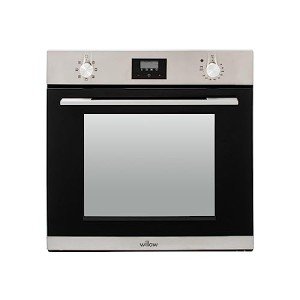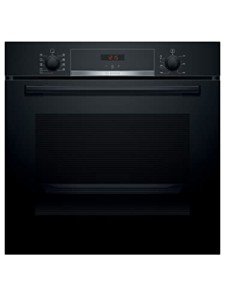10 Things That Your Family Taught You About Integrated Ovens And Hobs
페이지 정보
작성자 Cameron 작성일 25-05-21 11:33 조회 46 댓글 0본문

The Ultimate Guide to Built-in Ovens: Enhancing Your Kitchen Experience
Built-in ovens have actually become a popular option in contemporary kitchen areas, using a blend of functionality, style, and convenience. Unlike standard freestanding ovens, built-in ovens are integrated ovens And hobs seamlessly into kitchen cabinetry, offering a streamlined appearance that can improve the aesthetic appeal of any kitchen. This article checks out the various types of built-in ovens, their benefits, installation factors to consider, and maintenance tips.

Understanding Built-in Ovens
Built-in ovens are created to be set up straight into kitchen cabinets, permitting for a more tailored kitchen setup. They generally are available in two primary types: single and double ovens.
Kinds Of Built-in Ovens
Single Ovens: These systems offer one cooking compartment, ideal for smaller kitchens or homes where cooking needs are modest.
Double Ovens: As the name recommends, these systems feature 2 separate cooking compartments, integrated ovens and hobs enabling users to prepare multiple meals at various temperatures at the same time. This is particularly useful for large households or those who often captivate guests.
Steam Ovens: These ovens cook food utilizing steam, which can assist maintain moisture and nutrients. Steam ovens are gaining appeal due to their health advantages.
Combination Ovens: These versatile appliances integrate the functions of a regular oven and a microwave, making them ideal for fast cooking and reheating.
Secret Features to Look For
When thinking about a built-in oven, there are a number of features that can improve your cooking experience:
Smart Technology: Many modern-day built-in ovens come equipped with smart innovation, permitting users to manage their oven remotely by means of smart device apps. Features include preheating the oven, changing cooking times, and keeping track of cooking progress.
Self-Cleaning Functions: Built-in ovens with self-cleaning abilities can conserve time and effort in kitchen upkeep.
Convection Heating: This function circulates hot air for even cooking, making it ideal for baking.
Security Features: Look for models geared up with features like cool-to-the-touch oven doors and automatic shut-off options for included safety.
Benefits of Built-in Ovens
Visual Appeal: Built-in ovens offer a sleek and modern appearance that can improve the overall style of a kitchen. They can be incorporated into cabinets, making them less intrusive than freestanding models.
Space Efficiency: built in range-in ovens optimize kitchen area, particularly in smaller sized kitchens where every inch counts. They can be placed at eye level, making it much easier to keep track of cooking without flexing down.
Boosted Functionality: With their innovative functions, built-in ovens provide enhanced cooking experiences and increased functionality compared to standard ovens.
Setup Considerations
Installing a built-in oven needs mindful preparation and factor to consider. Here are some essential points to bear in mind:
Space Requirements: Ensure that the selected oven fits snugly into the offered cabinet space. Procedure the measurements properly, accounting for ventilation and clearance requirements.
Electrical Requirements: Built-in ovens usually need a dedicated electrical circuit. Seek advice from an electrical contractor for proper setup.
Ventilation: Proper ventilation is important for optimal oven performance. Confirm that the installation location has sufficient ventilation to prevent getting too hot and guarantee safe operation.
Professional Installation: While DIY setup might appear appealing, employing the assistance of a professional can guarantee that the oven is installed properly and securely.
Installation Steps
| Installation Step | Description |
|---|---|
| Action 1: Measure | Measure the cabinet opening for your oven. |
| Action 2: Prepare | Prepare the electric outlet and ventilation choices. |
| Action 3: Connect | Link the oven to power, making sure all security procedures are abided by. |
| Step 4: Secure | Protect the oven within the kitchen cabinetry, utilizing appropriate screws and brackets. |
| Step 5: Test | Run a test to ensure the oven is working properly. |
Maintenance Tips
Regular upkeep can extend the life of your built-in oven and make sure ideal efficiency. Here are some upkeep pointers:
Clean Regularly: Wipe down the oven exterior and clean the interior frequently. Usage self-cleaning functions where readily available.
Inspect Seals: Ensure that door seals are undamaged to maintain efficiency and cooking efficiency.
Monitor Performance: Pay attention to how your oven functions-- if you see unequal cooking or uncommon noises, it may require expert servicing.
Follow Manufacturer Guidelines: Always abide by the upkeep standards supplied by the producer. This can help prevent issues and guarantee that guarantees remain valid.
Frequently Asked Questions about Built-in Ovens
What is the difference between a built-in oven and a freestanding oven?
- Built-in ovens are integrated into cabinets, using a structured look, while freestanding ovens are standalone appliances that can be positioned anywhere in the kitchen.
Do built-in inbuilt ovens need more maintenance than routine ovens?
- Not always. Maintenance depends on use and cleansing habits more than the kind of oven. Regular care is essential for all ovens.
Can I install a built-in oven myself?
- While it is possible to set up a built-in oven yourself, it is advised to work with an expert to guarantee safe and accurate installation, especially regarding electrical requirements.
What are the typical expenses of built-in ovens?
- Expenses can vary substantially based upon brand, features, and specs. Fundamental designs might begin around ₤ 800, while high-end models can exceed ₤ 3,000.
Are built-in ovens energy-efficient?
- Many contemporary built-in ovens are designed to be energy-efficient. Look for designs with an ENERGY STAR accreditation for the best efficiency.
In conclusion, built-in ovens are an excellent addition to any modern kitchen, combining aesthetics with performance. By understanding the various kinds of built-in ovens, their features, and the associated setup and maintenance requirements, property owners can make an informed choice that boosts their cooking experience and general kitchen design. As cooking technology progresses, built-in ovens are likely to play an integral role in the future of home kitchens, making sure delicious meals are prepared with ease and convenience.
- 이전글 Guide To Fitted Ovens And Hobs: The Intermediate Guide Towards Fitted Ovens And Hobs
- 다음글 15 Trends That Are Coming Up About Black Island Cooker Hood
댓글목록 0
등록된 댓글이 없습니다.



